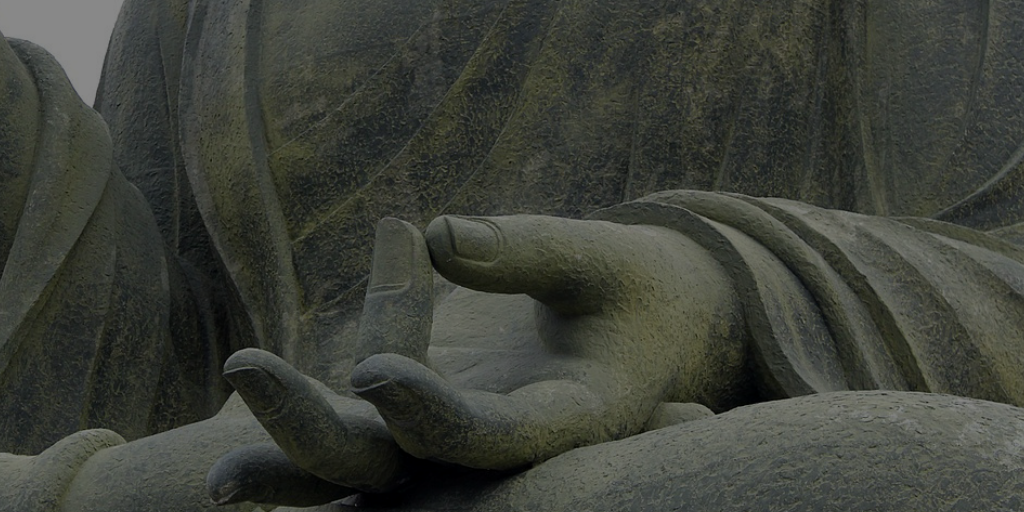Exposing four spiritual dangers in Eastern meditation: its non-Christian roots, mind-emptying problems, the potential to invite demonic affliction, & its self-focus over God-focus.
Short Answer
The four spiritual dangers in Eastern meditation are its non-Christian roots, mind-emptying issues, the potential to invite demonic affliction, & its self-focus over God-focus.
Long Answer
The Western world has become enamored with Eastern meditation. From its supposed practical benefits, to its filling a vacuum in our secular society, meditation promises much to the “spiritual but not religious” crowd. Some Christians are even attracted to it. Despite its seemingly innocuous qualities, Eastern meditation is not harmless.
There are four spiritual dangers associated with meditation as many people practice it. Meditation is usually synonymous with Eastern meditation, so the following concerns are directed toward Eastern religious meditations like Zen meditation, transcendental meditation, yoga, Chinese meditation, Hindu meditation, or guided meditation.
In this post, I aim to expose four spiritual dangers in Eastern meditation: its non-Christian roots, mind-emptying problems, the potential to invite demonic affliction, and its self-focus over God-focus.
Note: This critique is NOT directed toward those who practice a genuine and thoroughly Christian meditation.
Spiritual Danger #1:
Meditation Has Non-Christian Roots
No matter how someone learns about Eastern meditation, its roots cannot be ignored: it was developed in Hindu, Buddhist, and other religious contexts, not within Christianity. Though many will object because they personally do not practice meditation in a religious manner, it doesn’t change the source of the practice: Eastern religions.
The problem with following Eastern religious practices is God forbids it. Just before the Israelites entered the Promised Land, Moses forbade the people from doing any native religious practices. Moses wrote…
“Take care that you be not ensnared to follow them, after they have been destroyed before you, and that you do not inquire about their gods, saying, ‘How did these nations serve their gods?—that I also may do the same.’ You shall not worship the LORD your God in that way, for every abominable thing that the LORD hates they have done for their gods.” (Deuteronomy 12:30-31).
This command was an Old Testament directive, but it’s closely aligned with forbidding idolatry, something the New Testament also forbids (1 John 5:21). God wants his people to worship him alone and not borrow any formalities from other religions. God is jealous for our affections (Exodus 20:5).
“You shall have no other gods before me.” (Exodus 20:3)
Spiritual Danger #2:
Mind-Emptying Meditation Is NOT Biblical
One of the core tenets of most Eastern meditation is mind-emptying. In other words, meditation aims to remove your conscious thoughts so your mind is at rest or empty. This may not seem problematic, but there is a major issue with it.
It’s not a Christian idea.
According to Donald Whitney, a professor of Biblical Spirituality at The Southern Baptist Theological Seminary…
“The idea of emptying the mind is not biblically based. There can be a danger. Some of the yoga stuff, where you’re given a mantra, that is rooted in false religions.”
As Whitney points out, the approach of emptying your mind is not a Biblical idea. In fact God praises an opposite practice: meditating on his Word. For instance, Psalm 1 commends the person who “meditates day and night” on God’s law (Psalm 1:2). The Apostle Paul instructs us, “whatever is true, whatever is honorable, whatever is just, whatever is pure, whatever is lovely…think about these things” (Philippians 4:8).
The Bible’s approach to meditation is very different from Eastern meditation. Instead of filling your mind with nothingness, Biblical meditation is filling your mind with God, his word, his ways, and his works. For instance, the Bible speaks of meditating on…
- God (Isaiah 28:3)
- God’s Law (Joshua 1:8, Psalm 1:2)
- God’s ways (Psalm 119:15)
- God’s works (Psalm 143:5)
- What is true, noble, right, pure, lovely, admirable, excellent, praiseworthy (Philippians 4:8)
“I will meditate on your precepts and fix my eyes on your ways. I will delight in your statutes; I will not forget your word.” (Psalm 119:15,16)
Spiritual Danger #3:
Meditation Can Lead To Demonic Affliction
The third problem is meditation may lead to demon affliction. The Gospel narratives (Jesus’ biographies) are filled with demonic activity (Matthew 9:32,33, Mark 9:29, etc.) Jesus encountered many people plagued by demons or evil spiritual beings. Somehow those demons got a foothold in those people and they wreaked havoc in a person’s life until Jesus cast them out.
It’s common knowledge in the exorcist community that demons afflict people due to non-Christian religious practices. Jesus alluded to something like this when he described how demons look for their hosts.
“When the unclean spirit has gone out of a person, it passes through waterless places seeking rest, but finds none. Then it says, ‘I will return to my house from which I came.’ And when it comes, it finds the house empty, swept, and put in order. Then it goes and brings with it seven other spirits more evil than itself, and they enter and dwell there, and the last state of that person is worse than the first.” (Matthew 12:43-45)
In this passage, Jesus describes how homeless spirits wander looking for cleaned-up “houses” to inhabit. Mind-emptying meditation is basically a “cleaned house.” It’s a ripe location for new or renewed demonic activity.
We live in a spiritual world. Whether we acknowledge the reality of demonic entities, they exist. Just as in Jesus’ day, demons afflict people and even possess some people. Eastern meditation seems to be one of the ways demons gain entrance and affect people. If you do not want demonic influence in your life, then avoid that type of meditation that seeks to empty your mind.
“And demons also came out of many, crying, ‘You are the Son of God!’ But he rebuked them and would not allow them to speak, because they knew that he was the Christ.” (Luke 4:41)
Spiritual Danger #4:
Meditation is Self-Focused NOT God-Focused
God is clear. He wants to be first place in our affections (Mark 12:30). Eastern meditation is the opposite of that. The focus of meditation is more about yourself than God.
Rosilind Jukic has researched Eastern meditation from a Christian perspective. She also finds several problems associated with meditation. Jukic wrote…
“Eastern meditation focuses on self: centering yourself, your inner self, self actualization, your breathing, physical feelings and emotions. The enemy will do anything to get us to stop focusing on Christ…Eastern meditation practices rely on self as the agent to bring peace, tranquility and oneness with deity—the original lie: ‘You can become like God.’”
This is a scary assertion for any student of the Bible.
Jukic is referring to the serpent’s temptation to Eve in the Garden of Eden when he promised God-likeness to the woman (Genesis 3:5). If Jukic is right (and I think she is), Eastern meditation isn’t just an extracurricular activity of other religions. It comes straight from Satan himself. The underlying philosophy of Eastern meditation is not Christian – instead it’s Satanic.
“You have said, “Seek my face.” My heart says to you, “Your face, LORD, do I seek.” (Psalm 27:8)
In Meditation: God’s Way Is Always The Best Way
God wants his people to meditate. But he wants us to do it his way, not in a way that will be detrimental to our souls.
With so much information everywhere that encourages meditation the wrong way, it’s hard to do the right thing. But we must be vigilant to seek God’s direction in all of these sometimes-confusing areas. God wants what is our ultimate good – communion with him. And God’s way is always the best way.
Resources
- The Empty Promise of Meditation – Albert Mohler
- 6 Reasons Why This Popular Mediation Trend is Dangerous for Christians – Rosalind Jukic
- What is Christian Meditation? – Brandon Clay
- How to Meditate as a Christian in 8 Steps – Brandon Clay








